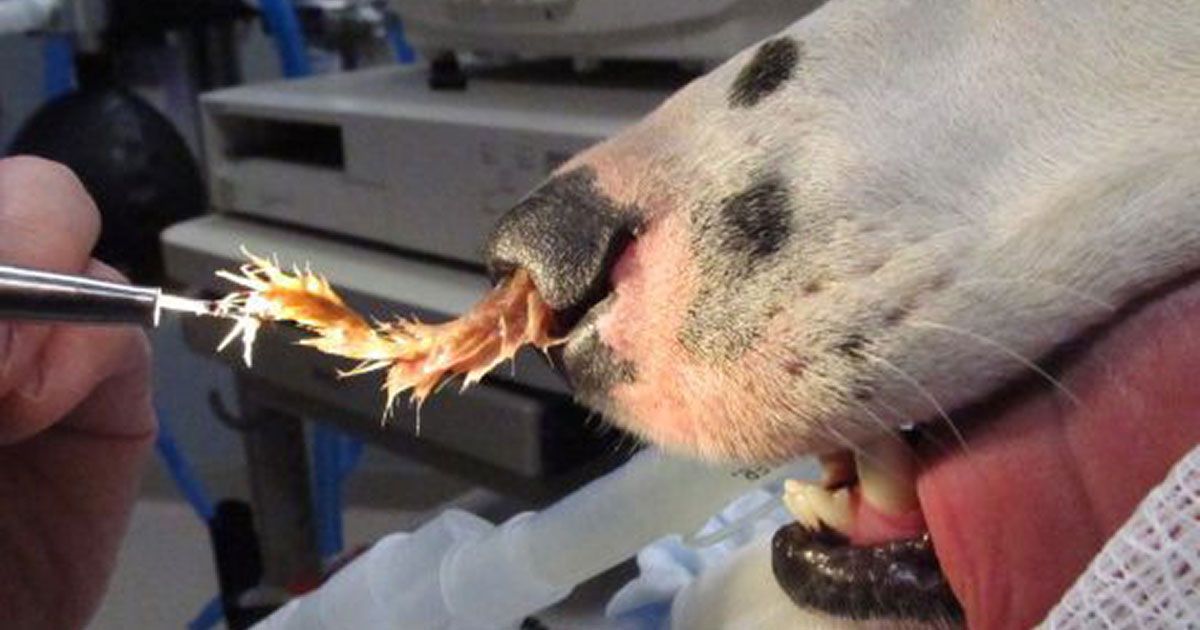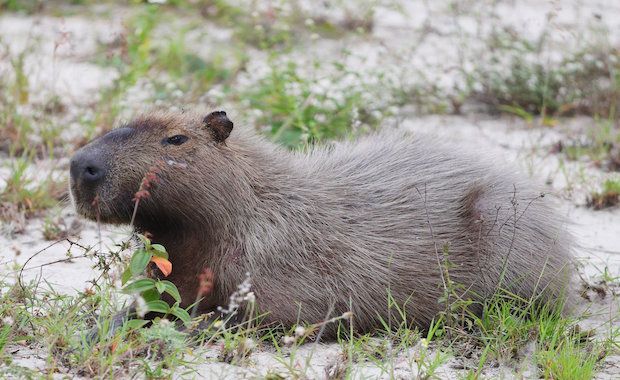Advertisement
Pets
Veterinarians Warn of Dangers of Foxtail Grass for Dogs
By
Dancy Mason
2 min read
- # danger foxtail grass
- # dog
- # Dogs
Advertisement - Continue reading below

Next time you go for a walk in the park with your dog, be extra vigilant. Veterinarians are warning that a seemingly innocent-looking plant called foxtail grass can actually be quite harmful to dogs. The seeds get stuck in dogs’ ears, nose, feet, and fur, potentially leading to permanent damage and even death.
Foxtail grass is a long, thin weed found mostly in the western half of the United States. It generally grows throughout the summer. The weed looks very much like many other long grasses or reeds, making it difficult to identify. Even so, the damage that foxtails cause can be anything but invisible.

Foxtails have spiny seed heads that get caught in dogs’ fur, and they eventually burrow their way into your pup. While this mechanism helps the plant seed itself into the soil, if a seed head finds its way onto your pet’s body, the results can be dangerous. The seeds don’t break down and keep tunneling into ear canals and nostrils, and will even continue on through the skin until they reach the brain, lungs, or spine, creating inflammation, abscesses, and other emergency situations that could require surgery. The most common areas that foxtail seeds can burrow are in dogs’ ears — especially if the dog has long hair — between dogs’ toes, in their eyes, and in their nose.
Because of the difficulty in identifying foxtails, vets are urging pet owners to be proactive and check their dogs regularly for seeds after romps in the grass. They also advise owners to shave long-haired dogs regularly. If you notice any discharge or swelling, or if your dog is limping and scratching in or around common seeding areas, you should take your pet for a checkup. Persistent sneezing is also often a sign that a foxtail seed is stuck in a dog’s nose.
If you do find a foxtail seed in your routine examination, take it out with tweezers if you can. If the seed is embedded deeply or has inflamed the surrounding skin, make sure to give your vet a call. Also consider checking for and pulling out foxtail grass from your yard, and keep your dog from running in tall, grassy areas during the summer.
Please SHARE this article with dog owners and dog lovers to spread the word about foxtail seeds. It could help keep a dog you love from danger.
(H/T: American Web Media)
Editor’s Note: This piece was originally published on Sept. 5, 2017.
Advertisement - Continue reading below












